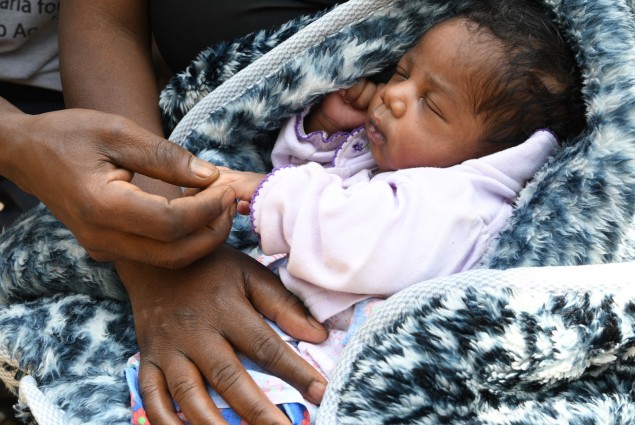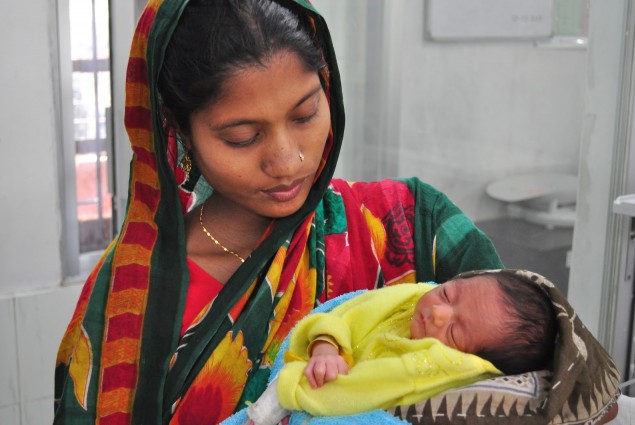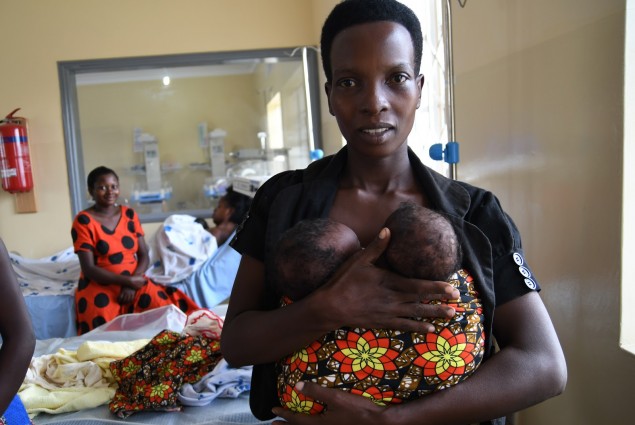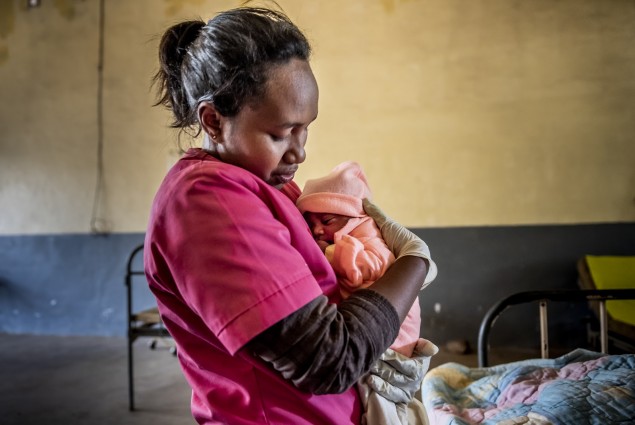- What We Do
- Agriculture and Food Security
- Democracy, Human Rights and Governance
- Economic Growth and Trade
- Education
- Environment and Global Climate Change
- Gender Equality and Women's Empowerment
- Global Health
- Humanitarian Assistance
- Transformation at USAID
- Water and Sanitation
- Working in Crises and Conflict
- U.S. Global Development Lab
Speeches Shim
- CHILD HEALTH
- IMMUNIZATION
- MATERNAL HEALTH
- NEWBORN HEALTH
- ENVIRONMENTAL HEALTH

When interventions are delivered during labor and childbirth and immediate newborn care is provided, up to 51 percent of newborn deaths can be avoided.
Globally, 2.5 million babies die during their first month of life, resulting in 46 percent of deaths among children under-5, and another 2.6 million babies are stillborn. Despite global reductions in under-5 mortality in the last decade, neonatal mortality rates have not decreased to the same extent, particularly in low- and middle-income countries.
However, cost-effective interventions are known. When interventions are delivered during labor and childbirth and immediate newborn care is provided, there is a 51 percent reduction in newborn mortality and 70 percent of stillbirths are averted.
USAID’s Response
- Increase access to quality care and services during labor, birth, and the first day and week of life. The time surrounding birth is a crucial period for an infant. USAID focuses on this key timeframe, working with private, public, and nonprofit partners to ensure that interventions have the greatest possible impact in reaching and providing care to women and newborns.
- Harness the power of parents, families, and communities to promote optimal health and care-seeking behavior. A family’s decision to seek out care, a family’s ability to reach care, and the availability and quality of care once the family arrives at the health facility are all affected by the parents, families, and communities that surround the family in question. USAID works with each of these groups to remove barriers against accessing quality maternal and neonatal care, both of which are vitally important to saving the lives of newborns.
- Monitor progress and outcomes for enhanced accountability. Regular data collection through surveys and built-in systems enables USAID and partner governments to track the success of programs and rapidly implement sustainable changes. Feedback systems make for responsive and effective health systems, which can be continuously improved to better fit the needs of newborns.
USAID's Impact

Newborn deaths decreased by 10 percent in Saving Mothers, Giving Life-supported facilities in Uganda.
The public-private partnership, Saving Mothers, Giving Life (SMGL), helped to reduce barriers to safe delivery and quality care in Uganda, Zambia, and Cross River State, Nigeria. At the end of the five-year partnership, newborn deaths decreased by 10 percent at Saving Mothers, Giving Life-supported facilities in Uganda. Early breastfeeding—a key intervention to save newborn lives—became a priority, and at the end of the partnership, 85 percent of infants born in a supported facility were breastfed within their first hour of life, compared to 23 percent in 2012. Photo credit: Amy Fowler/USAID

USAID co-founded Helping Babies Breathe’s neonatal resuscitation techniques reduced neonatal mortality by up to 47 percent.
Between 2010 and 2018, the USAID co-founded Helping Babies Breathe public-private partnership trained 500,000 health providers in evidence-based maternal and newborn care interventions in low-resource settings around the world. In Tanzania and Nepal, USAID’s support to Helping Babies Breathe’s neonatal resuscitation program helped reduce neonatal mortality in the first 24 hours by 47 percent and fresh stillbirths by 24 percent Photo credit: Amy Fowler/USAID

In Malawi, there was a 19 percent increase in survival of babies initiated on Kangaroo Mother Care through USAID’s Every Preemie.
Through programs like Every Preemie—SCALE (Every Preemie), USAID is intensifying efforts to develop, test, and scale-up simple, low-cost approaches and innovations, like Kangaroo Mother Care, an intervention that promotes skin-to-skin contact for preterm/low-birthweight babies as well as full-term babies. In Malawi, there was a 43 percent increase in the initiation of Kangaroo Mother Care, which resulted in a 19 percent increase babies’ survival. The Ministry of Health recognizes the model’s success and has requested its scale-up in more districts. Photo credit: Amy Fowler/USAID

In the last year, USAID helped 84,940 babies in Madagascar receive essential newborn care within two days of birth.
In collaboration with the Government of the Malagasy Republic and other partners, USAID also saved the lives of 5,761 babies in Madagascar who were not breathing after birth. Photo: Karen Kasmauski/MCSP

From 2012 to 2017, USAID reached 7.9 million newborns with care after delivery.
USAID is working with partners to scale up what works to save lives, and we're reporting back annually on progress. Check out the 2018 Acting on the Call report for more information. Photo: Abir Abdullah

Comment
Make a general inquiry or suggest an improvement.